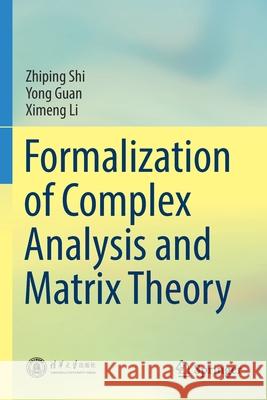Formalization of Complex Analysis and Matrix Theory » książka
topmenu
Formalization of Complex Analysis and Matrix Theory
ISBN-13: 9789811572630 / Angielski / Miękka / 2021 / 168 str.
Formalization of Complex Analysis and Matrix Theory
ISBN-13: 9789811572630 / Angielski / Miękka / 2021 / 168 str.
cena 574,14
(netto: 546,80 VAT: 5%)
Najniższa cena z 30 dni: 539,74
(netto: 546,80 VAT: 5%)
Najniższa cena z 30 dni: 539,74
Termin realizacji zamówienia:
ok. 16-18 dni roboczych.
ok. 16-18 dni roboczych.
Darmowa dostawa!
Kategorie:
Kategorie BISAC:
Wydawca:
Springer
Język:
Angielski
ISBN-13:
9789811572630
Rok wydania:
2021
Wydanie:
2020
Ilość stron:
168
Waga:
0.26 kg
Wymiary:
23.39 x 15.6 x 0.97
Oprawa:
Miękka
Wolumenów:
01
Dodatkowe informacje:
Wydanie ilustrowane











